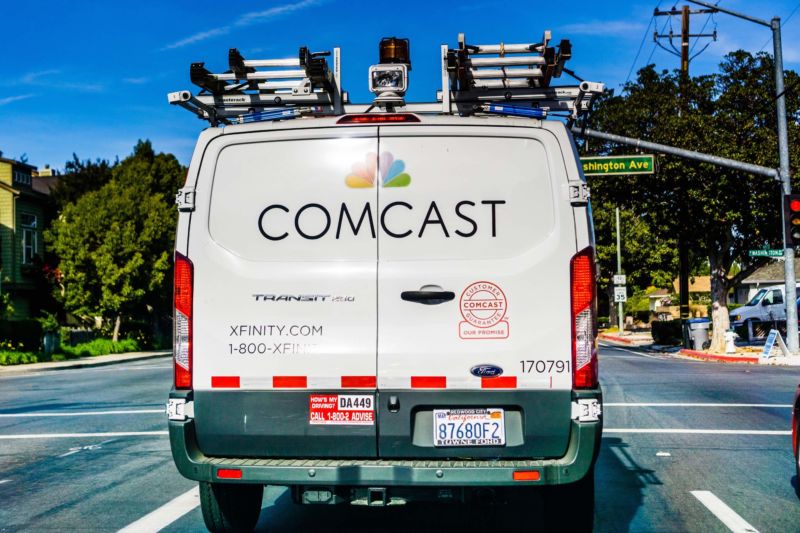
A whole slew of cable companies are notching up a victory in a lawsuit against the state of Maine that seeks to block a recent law that would require à la carte cable offerings.
Comcast spearheaded the coalition of companies, which filed the suit in September. The Maine law, the first of its kind in the nation, was invalid for two reasons, the suit argued: first, because it pre-empts federal communications law, and second, because it violates companies’ First Amendment rights. Comcast was joined by more than a dozen other plaintiffs, including its own NBCUniversal subsidiary, CBS, Viacom (which had not yet completed its merger with CBS), Disney, Fox, A&A, Discovery, and Hearst.
As is common in such suits, the plaintiffs first sought an injunction that would block the state from enforcing the law while the rest of the legal process gets sorted out. District Judge Nancy Torresen granted the injunction in a ruling (PDF) issued just before Christmas.
One good argument, two bad
The injunction would only be granted if the plaintiffs had a chance at winning on the merits of an argument, Torresen explained in her ruling. Two of the main arguments Comcast, et al put forth were unlikely to prevail, she found, but the third just might.
The pre-emption argument was likely a bust, Torresen ruled, because the Maine law as written is content-neutral. “LD832 requires cable operators to offer access to cable channels and programs individually,” she noted, but “it does not require or prohibit cable operators from carrying any particular channel or program.”
The First Amendment argument, meanwhile, was broken down into two overall buckets. The companies first argued that they have an innate right to bundle, as bundling cable channels together is, from their point of view, “editorial discretion” of the same sort a newspaper editor shows in bundling sections together. This argument doesn’t fly, Torresen found, in part because the plaintiffs “do not explain why cable operators’ editorial discretion to choose what channels or programs to offer, which is protected by the First Amendment, should extend to cable operators discretion in how to sell that programming.” Nor does the Maine bill prohibit bundling, she pointed out; it only mandates that unbundled options also be made available.
The companies did succeed, though, with their other First Amendment-based argument. In short, they made the case that the Maine law violated their rights because it applied narrowly, to traditional cable carriers (MVPDs) but not to alternative, Internet-based platforms—such as Dish Sling, Sony Vue, or YouTube TV—that also provide bundled content.
Torresen granted the preliminary injunction on those First Amendment grounds. “Although I had anticipated consolidating the preliminary injunction hearing with the trial on the merits,” she concluded, “the evidentiary record is not sufficiently developed to allow me to make a final determination,” and so there will be further hearings in early 2020.
https://arstechnica.com/?p=1637619

